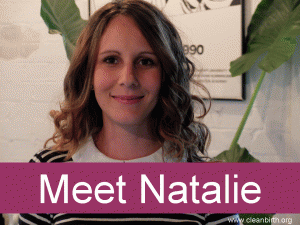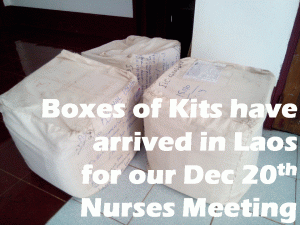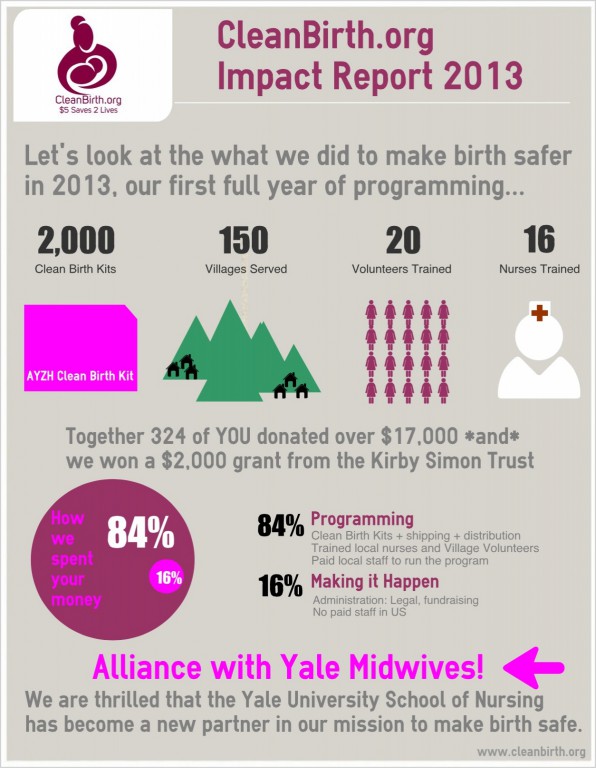CleanBirth.org Volunteers: Meet Natalie

She is an Australian psychologist who recently completed her first year as a medical student in Sydney Australia. She has extensive experience volunteering in Peru and Chile.
Natalie found CleanBirth.org on the internet and approached me to get involved. Here’s more about her motivation to get involved in her own words:
As part of my medical degree I am required to complete a social justice elective in an area of my choosing. My parents have been living and working in Vientiane for the past year and for this reason Laos has very much been on my radar. Through my interest in obstetrics in developing countries and being familiar with an Australia NGO Send Hope Not Flowers, CleanBirth.org caught my eye as an earnest and extremely valuable venture where I could potentially lend a hand.
From December 19-23, Natalie will be working closely with Dr. Nong and Noy, OVA staffer/CleanBirth.org’s part-time project manager on the ground.
They will distribute kits and review nurses’ data on Dec 20th and train the nurses on our new data tracking tool for Village Volunteers.
On Dec 21st they will coordinate the training of another 12 Village Volunteers in a Salavan District clinic. The nurses will teach the Village Volunteers not only to spread information about safe birth but also how to distribute and track the AYZH Clean Birth Kits.
We are so grateful to Natalie who is paying her own way and volunteering her time!
CleanBirth Listed in Numerous Holiday Guides!

We are so honored to be included with heavy-hitting maternal health institutions like: Oxfam, Care, Unicef, Jhpiego, World Vision, Shanti Uganda, etc…
It is so wonderful to have more people getting the word out about our cards this season! Especially, when so little can do so much!
Please consider adding a $3 gift tag to your gift or giving a $10 full-sized card to someone who already has everything. You will be saving lives in Laos.
Plans for Nurses Meeting: December 20th

- Improve data collection by nurses.
- Distribute needed # of kits/stipend to each nurse.
Main challenge to address:
Before we can give the birth kits to the Village Volunteers (which is our eventual goal) we need to improve the nurses tracking birth kits usage.
We are so thrilled that Natalie Gracia, a MD student from Sydney Australia will be working together with Dr. Nong and Noy to ensure that we put in place even clearer procedures for data tracking.
Health Volunteers: Training and Support Needed

This week several items have got me thinking that we are on the right track to be training health volunteers in each community. However, instead of dreaming about a mobile phone in the hands of every health volunteer, we need to take a step back and ensure that they get the right training and support.
This week I watched a video about new WHO guidelines for “task shifting” from doctors and nurses to health workers. I also read this article about the about health worker training. Both made me think:
We need to make sure that we have a good plan for training and supporting the volunteer health workers, before we give them tangible supplies or cell phones.
A new article from Cochrane, looks at data from 50 qualitative studies of worldwide community health worker initiatives. They identify, according to Helen Morton of Cochrane, eight key factors that could help facilitate success:
1. Community connection: Selecting community health workers with local knowledge and from similar backgrounds to their patients.
2. Incentives: Introducing incentives that community health workers see as fair, consistent and appropriate.
3. Participation: Enabling families and communities to engage in deciding which health services will best meet their needs.
4. Training: Providing sufficient, high-quality and relevant training, including counseling and communication skills.
5. Working conditions: Ensuring a reasonable workload, manageable distances to cover and adequate supplies.
6. Integration: Encouraging clinics and the broader health system to recognise and engage community health workers, and nurses and other health professionals to develop better working relationships with them.
7. Low/no cost services: Delivering health care that is affordable for all.
8. Communication and support: Providing opportunities for community health workers to provide mutual support to one another and building channels for them to voice grievances.
- « Previous Page
- 1
- …
- 11
- 12
- 13
- 14
- 15
- …
- 33
- Next Page »
